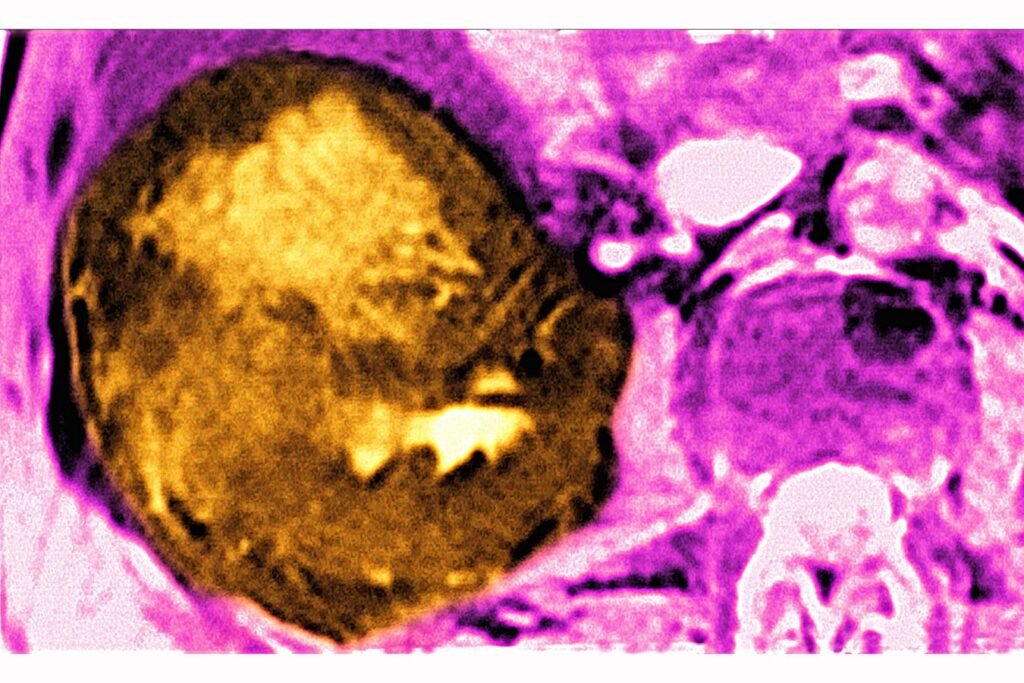Cancer of the liver, seen in a radial cross-section abdominal scan. (Photo by: BSIP/Universal Images Group via Getty Images)
Universal Images Group via Getty Images
The global study published in The Lancet forecasts a drastic increase in liver cancer cases over the next 25 years. The study predicts a rise from over 850,000 cases in 2022 to more than 1.5 million new cases globally by 2050 if no public health interventions are implemented.
Unlike other cancers, liver cancer is particularly concerning as it ranks as the sixth most common cancer worldwide and the third deadliest. The survival rates are alarmingly low, with 5-year-survival rates ranging from 5-30%, as reported by HealthDay.
The study highlights that about 60% of liver cancer cases could be prevented by addressing key risk factors. With liver cancer claiming the lives of 700,000 individuals globally each year, focusing on these risk factors should be a priority for future public health interventions.
Major preventable factors contributing to liver cancer include Hepatitis B and C, alcohol consumption, and liver diseases linked to obesity and metabolic issues. The good news is that vaccinations and anti-viral therapies can significantly reduce the risk of developing cancer or acquiring viral infections such as Hepatitis B and C. The Hepatitis B vaccine, for instance, offers protection to at least 95% of healthy individuals, as stated by the World Health Organization. Similarly, a short course of medication can cure Hepatitis C in almost 98% of cases.
Challenges in reducing liver cancer rates by 2050 may arise due to vaccine hesitancy, which has hindered vaccination efforts globally. Despite vaccines being safe and effective, vaccination rates for various diseases are declining worldwide. For example, only 17% of individuals in the WHO African region receive the Hepatitis B vaccine, not only due to access issues but also misinformation and hesitancy.
Alcohol consumption is another significant preventable risk factor for liver cancer. Alcohol abuse can lead to liver scarring (cirrhosis), increasing the risk of developing liver cancer. Approximately 400 million individuals worldwide suffer from alcohol use disorder. Even moderate alcohol consumption can elevate the risk of liver cancer, according to research published in Cancer Causes Control. Implementing policies such as taxation, warning labels, and educational campaigns could help reduce alcohol-related liver cancers.
Furthermore, liver diseases associated with obesity are on the rise globally, particularly in the United States. Metabolic dysfunction-related liver disease affects 40% of the global population and is strongly linked to obesity and type 2 diabetes. This condition, and the potential cancer it can lead to, can be prevented through a balanced diet, regular exercise, and weight management. Addressing the global obesity epidemic could significantly lower the projected number of liver cancer cases by 2050.
Liver cancer poses a significant treatment challenge once it reaches an advanced stage, reflected in the low survival rates. Treatment can also be costly and burdensome for healthcare systems worldwide. Without proactive measures such as increasing vaccination rates, enforcing alcohol regulations, and promoting healthy lifestyles, the world risks facing a preventable disease with severe social and economic consequences. Prevention is not just an option – it’s imperative.


